That US is losing one of its best-read presidents, and will gain one of the least likely to have ever read a book. Does that matter? Mihir S Sharma explains why it should.
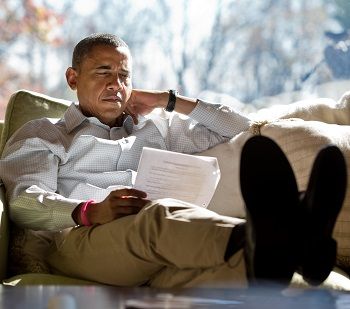
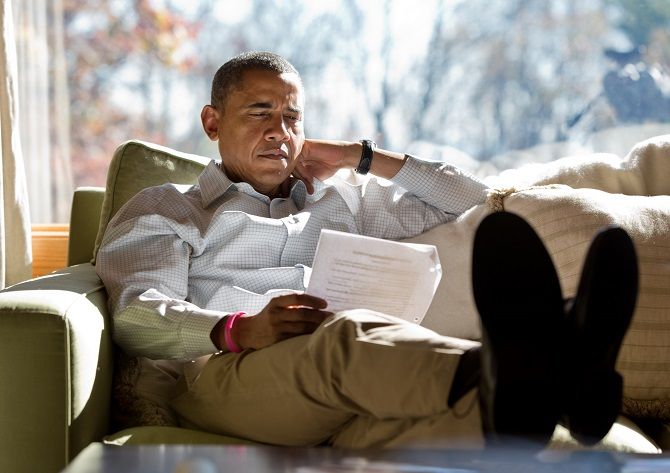
Among the many, many extraordinary aspects of the presidential transition that is shortly to occur in the United States is this: That country is losing one of its best-read presidents, and will gain instead one of the least likely to have ever read a book.
Does that matter? What difference does a leader's reading material make, anyway? Let's look just at these two individuals -- Barack Obama and Donald Trump -- as a start towards answering that question.
First, let's compare the two men's attitude to books.
Mr Obama is not just a reader, he is a genuine writer. The books he wrote when he was a young politician -- particularly Dreams From My Father -- are written beautifully, and in his distinctive voice; this is not a President who needs a ghostwriter. If you read the book with that intention, you can, in fact, detect the books and authors which had affected him enough that they left an imprint on his own style.
Indeed, Mr Obama is such a voracious reader that his summer reading list has become a national obsession in the US over the past years -- the first thing that you see when you walk into most chain book-stores is a table with all the President's books on it.
- Read on Rediff Books: Dreams From My Father and The Audacity of Hope
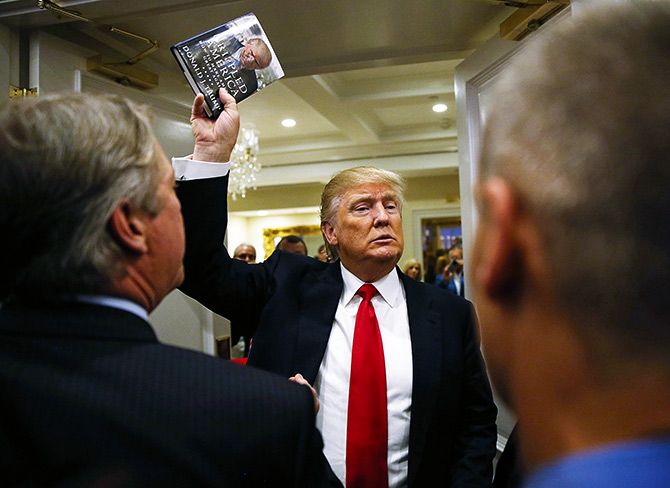
Let's now consider Donald J Trump, Senior.
Mr Trump has also written books. Various friends of mine, amused by my interest in Mr Trump, have over the years gifted me various copies of these books, too. They are no better than the average self-help "get-rich-quick" book written by a successful corporate executive or businessman. To the extent that some of them have better ghostwriters than others, there is more of Mr Trump's distinctive voice in them; you can judge for yourself whether that makes those particular books more or less appealing.
Certainly, they do reflect his thinking to a degree, and I won't be surprised if there are study groups of career diplomats across the world solemnly reading How to Think Like a Billionaire for insights into Mr Trump's attitude to cotton tariffs.
What's most relevant here, perhaps, is the judgment of Mr Trump's first ghostwriter, who collaborated with the real estate magnate on the book that was long sold at South Delhi traffic lights, The Art of the Deal. That unfortunate writer revealed, among many other useful insights into Mr Trump's disposition and character, that he didn't think that the future President had even read one book all the way through as an adult. (To be fair, neither have many professional book reviewers.)
Late-night comedy television has taken this insight to an extreme; the brilliant Samantha Bee, in a segment aired the fortnight prior to the election, made an only-half-joking case -- based on archival footage and his own statements -- for Mr Trump being functionally illiterate. Question: Has anyone actually seen him tweeting?
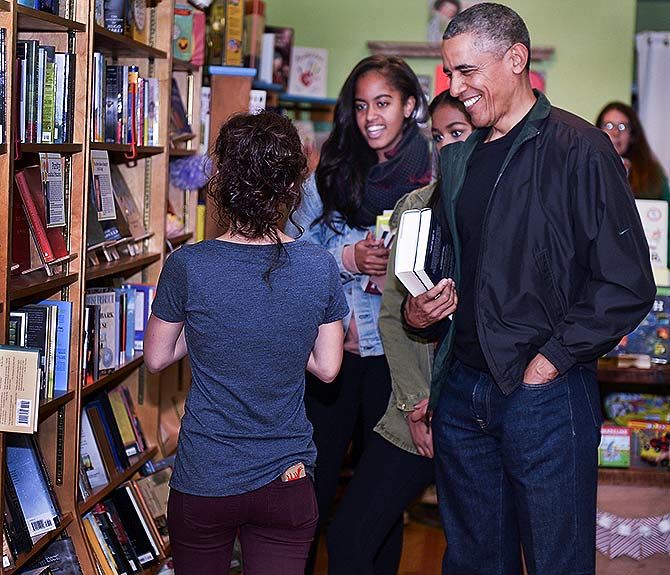
What does this tell us about the difference between the two men?
Mr Obama's reading list, which skews heavily to the literary and the non-fiction doorstopper, is key to understanding his professorial, sometimes remote approach. He believes in seeking out as many views as possible and at as much depth as is possible -- sometimes to a fault, as many critics of his foreign policy in particular argue. Readers trained in the multiple narratives of literary fiction might well be poorly suited to one specific aspect of political leadership: The snap decisions, the doubling-down on one's own instinct.
Mr Trump, meanwhile, doesn't deal in nuance. He doesn't concern himself with the sort of consistency over time that bothers long-time readers. A writer can't unthinkingly contradict himself from one page to the next; a tweeter can issue contradictory tweets within hours. Most of all, reading trains you in empathy; Mr Trump can be accused of many things, but not of being overly empathetic. His communication style is, and will be, direct and punchy rather than academic and explanatory.
What of others?
What, say, does Angela Merkel's reading tell us about her?
Well, as the daughter of a pastor and a theologian, she tends to name the Bible as one of her favourite books; that's unusual, perhaps, for a European politician, if not for an American one. (George W Bush famously declared that Jesus was his favourite philosopher.) But she has also named Goethe's Faust, for what it tells us about the limits of human action and about the German character; and, perhaps unsurprisingly, Dostoevsky. The solemn, somewhat cautious, but deeply moral nature of her leadership is easily explained.
Hillary Clinton, meanwhile, tends to read books written by women -- one list she released in 2000 had only a single male author on it -- and, unlike Mr Obama, also has a weakness for thrillers.
Yet others, like Margaret Thatcher, have used their favourite books as instruction manuals; a famous story with many versions, all possibly slightly true, has her tossing Friedrich Hayek's The Constitution of Liberty at her Cabinet, saying "This is what we believe".
People are shaped by what they read; leaders doubly so. I do occasionally wonder: What's our own prime minister reading these days?
Don't Miss: The Obama Years










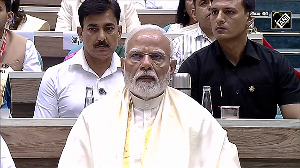

 © 2025
© 2025